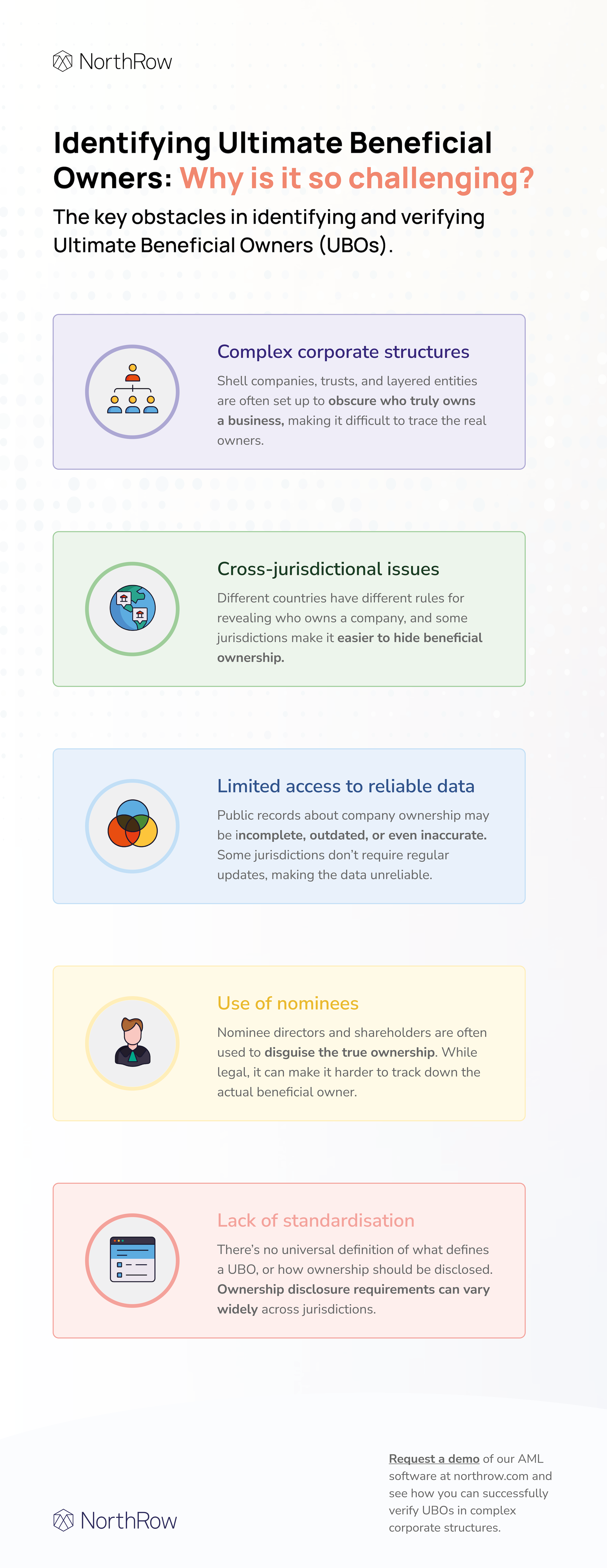Uncovering Ultimate Beneficial Owners (UBOs) is a crucial part of tackling financial crime, but it’s not without its challenges. At the heart of these challenges are complex corporate structures. Shell companies, trusts, and multiple layers of ownership can easily hide the true owners behind a business. These structures can cross jurisdictions, making it even harder to trace UBOs, especially when the rules for ownership disclosure differ from one country to another.
Accessing reliable data is another key issue. Many jurisdictions fail to maintain accurate and up-to-date public records, which means the information available can often be incomplete or misleading. When you add in the use of nominee directors or shareholders – people who act on behalf of the real owners – the task of identifying UBOs becomes even more complex.
But it’s not just about the data. The lack of a universal definition for UBOs makes things even more confusing. Different countries set their own thresholds for who qualifies as a UBO. This lack of standardisation means that comparing ownership across borders is a constant challenge.
There’s also resistance from the owners themselves. Many UBOs actively resist disclosure, either to protect their privacy or avoid the scrutiny of tax authorities. Add to that the constantly evolving regulations, such as Anti-Money Laundering (AML), Know Your Business (KYB) and Know Your Customer (KYC) laws, and it’s clear why identifying UBOs remains a difficult task.
The need for greater transparency, improved systems, and global cooperation is more urgent than ever to fight financial crime and ensure accountability.








